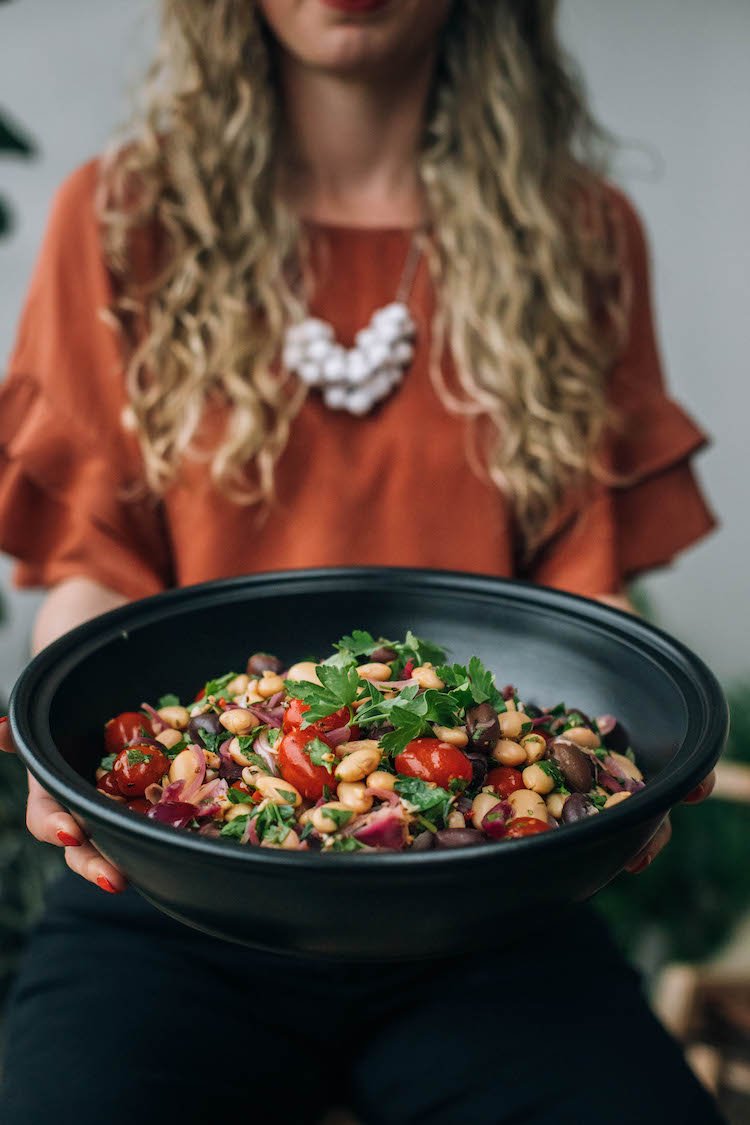WHY YOU KEEP GETTING UTIS AND WHAT TO DO ABOUT IT
BUSTING THE MYTHS AROUND BLADDER PAIN
On those rare occasions you admit to someone that you’re struggling with yet another UTI - because you feel like a bit of a broken record having to say it again and people will probably think you’re exaggerating if you’re open about it, won’t they - you’ve probably heard the same old wisdom about what to do about them.
Advice like:
Just flush the UTI out with water.
Just drink cranberry juice.
Pee after sex.
This advice is keeping you stuck. It’s not helping you to shift that painful peeing and it’s making you feel ashamed and embarrassed to ask for help - because you feel like there must be something wrong with you. You’ve already tried D-mannose, cranberry extracts, probiotic supplements with a bunch of strains. And you’ve been on long term antibiotics (which you’ve had more than enough of). Perhaps you’ve even been on Hiprex and you’re now concerned about side effects.
That’s such a lot for you to be going through on your own. You probably feel like the only person in the world with such an angry bladder. It’s really impacting your life - I’ve known women who had to work from home for 2-3 days after sex because they have a UTI, a flare in bladder pain, or an increase in urgency, frequency and bladder soreness. That’s a total pain and can feel like it’s taking over your life. And that’s what this blog is here to remedy.
Because:
You are far from alone in struggling with recurring UTIs.
There are proven, effective ways to tackle your symptoms.
Prevention is better than cure, and we have more tools at our disposal there than most people realise.
We need to talk about bladder pain and UTIs. We need to talk about why you really keep getting them and the things that genuinely work in getting rid. We need to answer those late night Google searches of:
“Why do I get UTIs so often?”
“Why do I get UTIs constantly?”
“Why do I get UTIs so easily?”
So, let’s dive in...
WHAT ACTUALLY CAUSES UTIs
Getting a UTI means you have a pathogenic bacteria in your urinary bladder and symptoms include: urgency, frequency, stinging and burning on peeing, sometimes blood in the urine, foul smelling urine. Symptoms if ignored can worsen, so it’s important to seek medical attention. Don’t wait, just drink water and hope it goes away. Contact your doctor for support.
Indwelling infections are thought to be triggered by numerous factors – such as changes in immune status, diet, trauma etc. If you’re not supporting your immune system, your bladder lining is irritated and inflamed from trauma or bruising (e.g. from sex), or you have a history of UTIs (making you more susceptible to infection as the bladder lining is more permeable), this could be the cause of your UTIs. It is perfectly normal to get UTIs. And there are steps you can take to reduce your risk if you’re susceptible to UTIs.
Potential causes of UTIs are numerous:
Sex and sex toys (if not cleaned properly, or used anally and then vaginally)
Catheter use (many UTIs are caused by E. Faecalis, which is associated with catheter use in hospital)
Dehydration
Vaginal infections or imbalances
Cold weather also increases the risk
Holding on to pee for too long
Stress (suppresses your immune response)
Alcohol, a poor diet of convenience foods, nutrient deficiencies.
The vagina can also act as a reservoir for bacteria that can translocate to the bladder and trigger infections. There can be indwelling infections in the bladder or vagina that “flare” when the opportunity arises such as when you’re run down, not eating well, or using antibiotics.
Another theory of how recurrent infections occur is that of ‘covert pathogenesis’. This is where a vaginal bacteria, such as Gardnerella vaginalis, is exposed to the urinary bladder, causing exfoliation of the bladder cells, allowing indwelling E.Coli to proliferate, whilst the Gardnerella vaginalis leaves the scene of the crime.
Another way of thinking about this is those uninvited teenagers turning up to a “Mum and Dad are away, let’s have a party” gathering, drink all the best booze and then scarper as another set of much worse behaved uninvited kids turns up, and then the party is very much over when very cross grown ups show up to shut things down. Gardnerella vaginalis is the initial uninvited guest here. Your bladder is the house (or scene of destruction). And while things are getting broken and damaged during party time, that’s E.coli (the even worse kids showing up) growing and maximising the destruction - and level of grounding when Mum and Dad get home (that’s your bladder pain, by the way).
You can read more about this here. This mechanism shows the importance of the vaginal-urinary interconnectedness when considering the cause of recurrent urinary infections and why I recommend both urinary and vaginal microbiome testing as part of the Heal your Bladder programme.
WHY YOU’RE GETTING FREQUENT UTIS
So many women, like you, are stuck in a cycle of recurring UTIs. You start to wonder, “Does everyone get UTIs?” And the truth is, some women are more susceptible, in the same way that some people are more prone to ear infections or chest infections.
You find yourself on antibiotics, which seem to help at first, but then it feels like as soon as you recover you get hit with another infection - and you’re back at square one. Antibiotic resistance is prevalent. The infection may not have cleared up fully the first time, even though you had antibiotics and even if your test then comes back negative you could still have an infection because the standard tests aren’t fit for purpose (high rate of false negatives) so the infection comes back just as quick as it started.
After a recurring pattern you’re going to feel uncomfortable and sensitive. And you may end up with thrush because of the repeating antibiotic cycle. Then when you go back to the GP, the advice is, “shower after sex” or, “wipe from front to back” or, “drink more water”. This tells you nothing about prevention and how to help your immune system respond appropriately when needed. Like how we can use natural antimicrobials to help kill pathogens.
Recurrent urinary tract infections (UTI’s) are thought to arise from either ascending infection, travelling up the urethra from the vulvo-vaginal area, or indwelling infections of microbes that have become resident in the urinary bladder. Your bladder can become inflamed after a history of UTIs. Actually, the lining of the bladder can be inflamed and “leaky” in the same way as “leaky gut” - which means it can become permeable and easier for bacteria to translocate. You could also have a biofilm hiding the bacteria under a protective barrier to evade antibiotics and standard culture tests. So each time you’re run down, they proliferate and suddenly you “flare” or get an infection again.
It might be that whenever you feel run down, or under stress you get a UTI. My own experience was if I had a few too many late nights (partying, drinking, staying out late) I would get one. And also when the weather got cold, every winter I’d get a UTI. I now know this risk is increased because I’m dehydrated (from drinking alcohol), sleeping long hours (exhausted from partying late), not drinking enough water and holding pee in for too long. When stressed, your body’s requirements for certain nutrients increase so this needs addressing if you’re someone who gets UTIs when stressed/run down.
There’s also a need to talk about the difference between a chronic UTI and interstitial cystitis when it comes to bladder pain. You can find out more about this over in this blog post.
WHAT TO DO WHEN YOU KEEP GETTING UTIS
It’s important to get to the heart of the issue.
Killing bacteria is fine in acute episodes, but really we want to reduce the risk of that happening in the first place. This is entirely possible when you have the right support in place. That support looks like:
In depth testing of your urinary and vaginal microbiomes, (that does not rely on culture based test methods!), more on that here.
A dedicated plan to support your immune system (diet and supplements)
Optimising your vitamin D, here’s why
Understanding the right foods for you that are naturally antimicrobial, and which phytonutrients (natural plant chemicals found in specific foods) to eat daily.
The emphasis is on strengthening defences, supporting the good bacteria in the bladder, using foods and supplements to support bladder health.
My client Helen went through this process, and she wanted you to know this...
“By far the best nutritional support I have ever had, led by an extremely knowledgeable nutritionist who listens and helps you through every step of the way. I would highly recommend this programme and it is 100% worth the cost.”
Helen came to me having suffered with UTIs, cystitis and gut issues for a long time. Bladder pain and inflammation, urgency and frequency of urination, gut pain and bloating, gas, feeling abnormally full after every meal, were all the norm for Helen before we started working together.
By working with a bladder health expert like me, Helen realised that the process of healing the bladder and gut has different stages and many layers. By working slowly through these different stages of removing, replacing, repairing and supporting. Different foods and supplements slowly work to rebuild and repair for good. This was particularly insightful and gave her the knowledge to be able to maintain good health, moving forwards.
Leah, another Heal your Bladder success story, went from living in fear of recurring infections to regaining control, confidence, and freedom within six months. She found herself enjoying life with far less anxiety about her bladder and 12-months on reported she was still completely UTI-free.
There are so many potential causes of UTIs, recurrent UTIs are surprisingly common and there’s so much more you can do to defeat and defend against them than just taking antibiotics and “wiping back to front”. With nutritional support, you can boost your immune system and enhance your bladder microbiome so you glow with confidence and no longer need those late night internet searches for solutions.
Isn’t it time to put an end to the painful cycle of recurring UTIs, so you can get back to enjoying your favourite things, like drinking coffee or enjoying a glass of wine, without worrying about the painful consequences?
Are you ready to get your sex life back on track, without constant anxiety about the dreaded reappearance of a UTI?
Yes to all the above? Brilliant, then you’ll love the Heal Your Bladder programme, which was designed entirely with you in mind. Come check it out and get yourself some healing.
Free resource
Do your tests look '“normal” but peeing still hurts like hell? You can now access my free webinar with advice on what you should do next.




